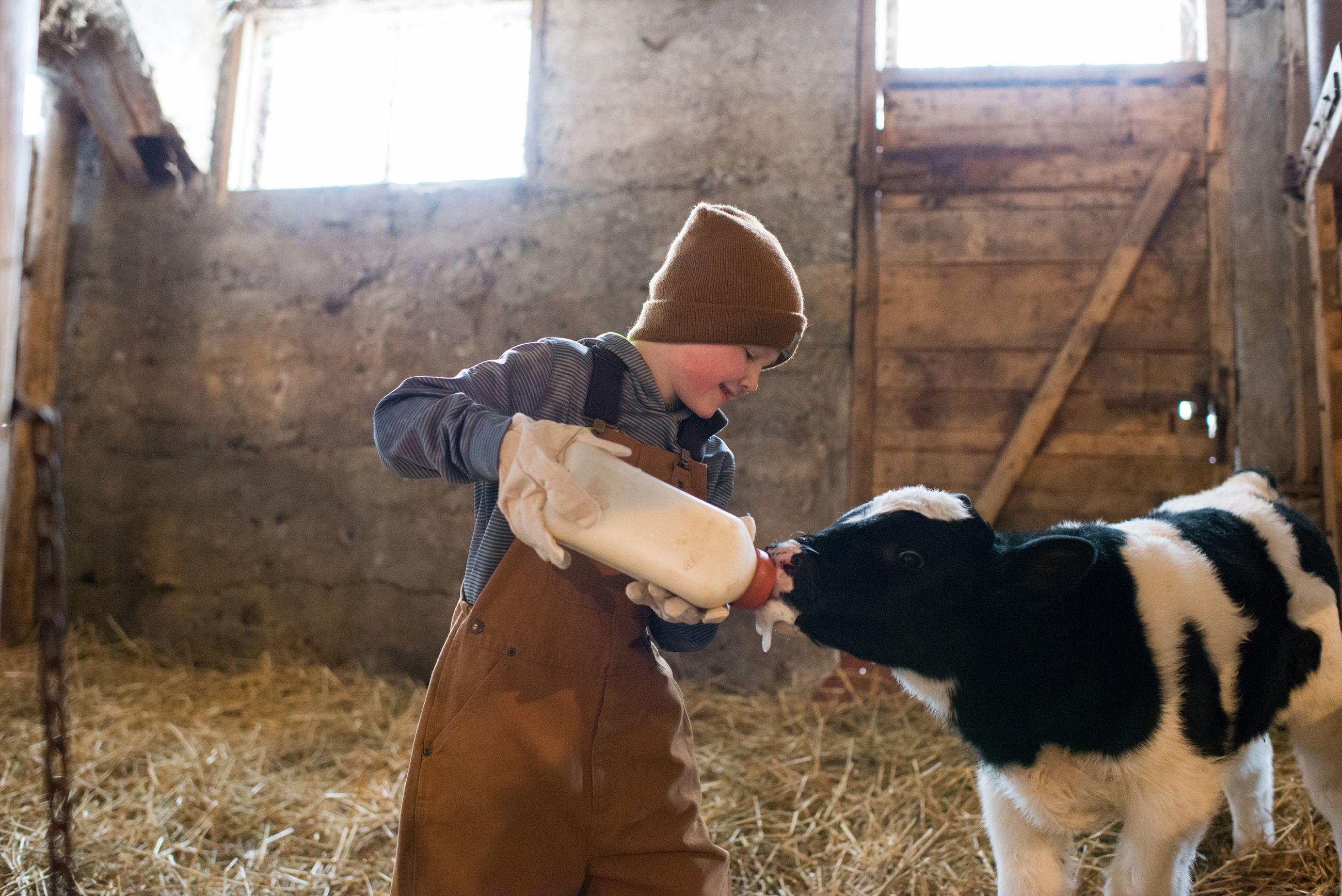Agricultural Safety for Children
Like any workplace, farms pose occupational risks for adults and children.
Many risks exist on a farm ranging from animals, to chemicals used on crops, to heavy equipment. It is important to take the time to review basic farm safety principles with your children if you live on a farm or are visiting one.
General Safety Tips:
| Stay away from the road |
| Farm roads have much higher speed limits. Drivers may not have enough time to slow down for sudden pedestrian traffic. |
| Don’t play in, near or around farm equipment |
| Farm equipment is dangerous. A child could easily cut themselves on sharp edges, be pulled into moving equipment, or even drown in storage bins. Don’t let your children near farm equipment, especially unsupervised. |
| Farm vehicles are not toys |
| Children should not operate tractors, lawnmowers, ATVs or any other farm vehicles. They pose similar risks as driving a car. |
| Teach your children about chemical hazards |
| Fertilizer, pesticides, herbicides, insecticides, antibiotics, and more can be found on farms. Sometimes they are in labeled containers and sometimes seeds are coated in these substances. Don’t allow your children to put seeds in their mouths. Teach children where the chemicals are and to stay away from them. To reduce chemical harm always wash your hands after handling farm chemicals. |
| Livestock aren’t pets |
| Farm animals are not pets. Never allow your child to climb into farm pens or to spend time with farm animals unsupervised. Animals can kick, bite and trample. |
| Know equine safety |
| If your child is participating in horseback riding, teach them about equine safety. They should always wear a helmet and never interact with a horse unsupervised. Horseback riders should always wear a helmet. Visit the University of Guelph's EquiMania site for more information. |
| Personal Protective Equipment and Hand Hygiene |
| Consider the risks around you. It may be necessary to wear steel toed boots, gloves, masks, or helmets depending on the activity. Never take your safety for granted. Always wash your hands after handling chemicals and livestock to limit the risk of ingestion and spread of disease. |
Hosting a Farm Safety Day?
Here are some great resources to get you started:
- Farm Safety Kits (Order for free, cover shipping)
- Various Farm Talks (Not all kid oriented, may be applicable based on topic)
- Workplace Safety and Prevention Services – Child and Youth Safety











